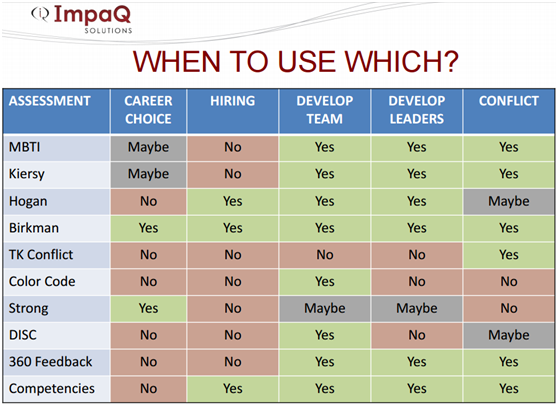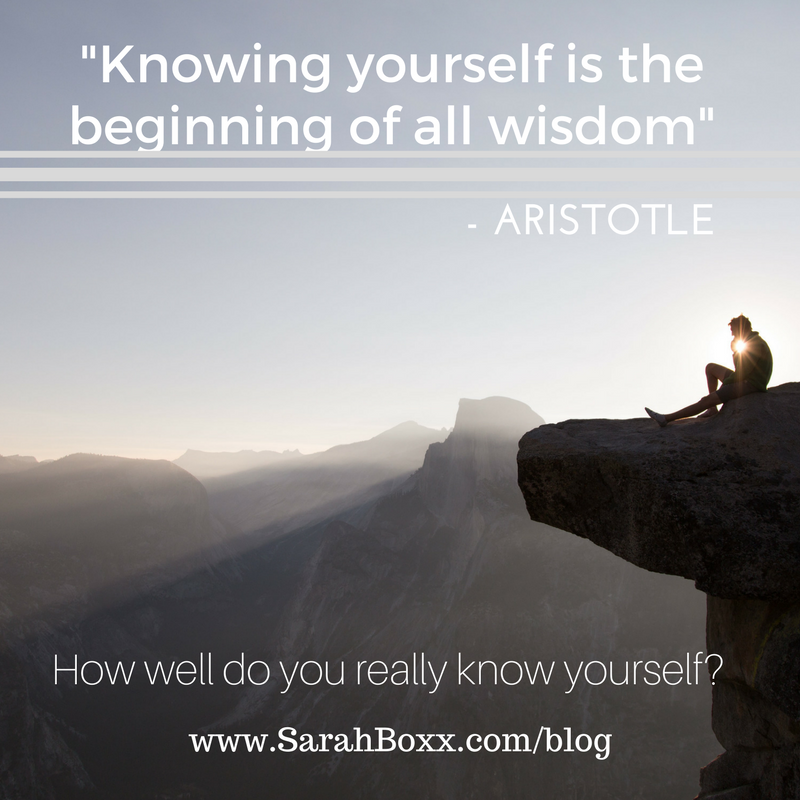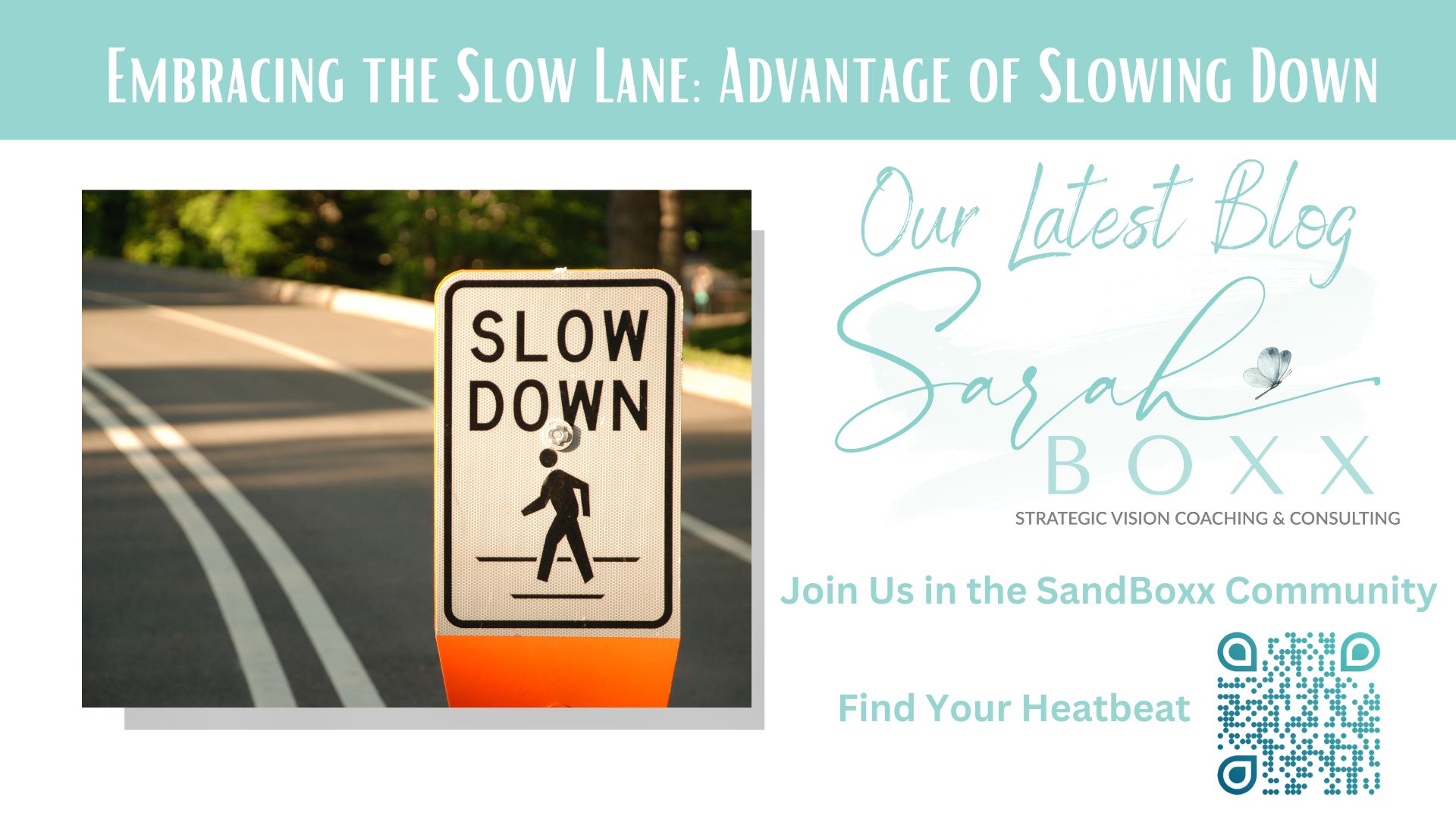Who is the one person you will spend the rest of your life with? Okay, this might be a trick question, but in all fairness, this is meant to make you stop and think for a moment. If you haven’t figured it out yet, the answer is YOU!
Aristotle said, “Knowing yourself is the beginning of all wisdom”. How well do you really know yourself and are you able to take that knowledge to improve your personal and professional relationships?
So many questions, but really, the answers can help you move yourself to the next level.
Last week, we talked about why self-assessments matter, what hidden values may be waiting to be uncovered. Coming to the conclusion that we should be taking the time to self-assess more often with assessments that are specific to what we are trying to learn or where we are trying to grow. This week, we’re diving into the specifics about a variety of assessments available today and how to choose the correct tool for your current circumstance or need.
According to a study of Emotional Intelligence 2.0 (Bradberry and Greaves), 83% of high performers scored high in self-awareness. To become self-aware, you can start by inventorying your figurative assets and liabilities. There are a number of tools (some free, some not) designed for different purposes, to help you along your journey. Let’s highlight some of the most common ones and some that may be less familiar.
The first step in choosing the right assessment tool is to determine what your specific needs are. Take some time to analyze and outline what you are trying to understand, or what kind of performance you want to predict or achieve. Whatever type of tool you are considering, make sure it has valid data demonstrating the effectiveness, otherwise you could be wasting your valuable time.
You can improve your end results by combining multiple tools that can predict different types of outcomes. For instance, combining a personality test with an ability test can increase the overall picture of yourself. Generally, it’s a good idea to focus on assessment tools that predict both what you “can do” and what you “will do.” This usually means having a mix of assessment tools that measure hard skills such as knowledge and problem-solving, as well as soft skills such as reliability and loyalty.
What’s the big deal with personality assessments? How do they help? If you are feeling disconnected from your true self, you might start there. It can provide some critical insight on your natural ways of being and interacting in the world. How do you best express yourself and communicate with others? What are the things you do well and with little effort? The things that seem second nature to you (because they are)? What are the areas that seem to trip you up? Once you have a better idea, you will have some powerful information to improve your professional success and increase your personal fulfillment factor.
There are two very well-known personality assessment options that you might consider, the Myers-Briggs and the DISC profile assessments. Myers-Briggs is often used in large organizations or by career counselors and is designed to measure psychological preferences and how you perceive the world and make decisions based on those perceptions. DISC analyzes behavioral styles and personality traits and is typically viewed as an easier, more practical tool, being less theoretical.
What if you are looking to advance your career or learn how to be more effective in a corporate or entrepreneurial environment? Perhaps a career assessment tool may fit the bill. There are many options available, but we’ve found three (My Next Move, Motivational Appraisal of Personal Potential (MAPP), and Holland Code) listed on Monster.com to help you narrow down your professional path, giving you a better sense of where you should be headed and how you can market yourself for those positions. Fun fact, the MAPP Assessment compares your scores against over 1,000 jobs so you can see where you might fit best.
What if you are part of a larger organization, maybe in C-Suite Management or similar? Are there assessments available for managing the corporate structure too? Certainly, there are! One of interest was published by Harvard Business Review and focuses on the cost and effect of bureaucracy in organizations. This assessment actually helps to calculate the BMI (bureaucracy mass index) to determine how deeply bureaucracy is entrenched in your organization. You can take the assessment for yourself with the questionnaire created by HBR.
We’ve found a few other alternatives including: Big Five, Predictive Index, Traitify, and two emotion-focused tests (Adaptive Resilience Factor Inventory and the Mayer-Salovey-Caruso EI test). Another unique assessment that I personally took is the “Know Thyself Personality Assessment” which provided very accurate insights on my personal strengths and styles, how I work best with others and how others identify me.
Still not finding what you’re looking for? Understandably, your situation is unique and not exactly like anyone else’s. Below is a good visual reference from ImpaQ Solutions which can help you determine when to use which. They also wrote a great article that goes deeper on assessments – Which, When, Why and by Whom.

What about the perspective of others, do you ever wonder how they really, truly perceive you? How to Fascinate is a personality test that measures how others perceive you at your best. This information can be invaluable, as you can learn how to make a better first impression, use your most influential traits, and ultimately play to your strengths.
What about how you perceive others? Do you have unconscious biases? A Harvard assessment called Implicit Bias Assessments, asks you to report your attitudes and beliefs about a variety of topics with the intention to help you understand and recognize biases you might have. From looking within yourself to learning how others view you and how you view them – the tools are plentiful, you simply need the desire to learn more.
Now that you’ve gotten an idea of what assessments are available to you, which ones have you already heard of or actually taken? Which did you find most helpful for your situation? In the last twelve months alone, I’ve taken Emotional Intelligence 2.0, Strengths Finder, Myers Brigg, How to Fascinate, and Know Thyself.
No matter how many assessments are taken, you must remember this: take the time to reflect, discuss and make an action plan for getting to know yourself further and in turn, build and grow your strengths. “Knowing yourself is the beginning of all wisdom.” Taking any assessment is just the “beginning”. Completing assessments, but taking no action means that valuable information is sitting dormant, waiting for you to apply it.
There’s a tool for every need, you just have to do your research and find the one(s) most applicable to your goals. Begin today.



